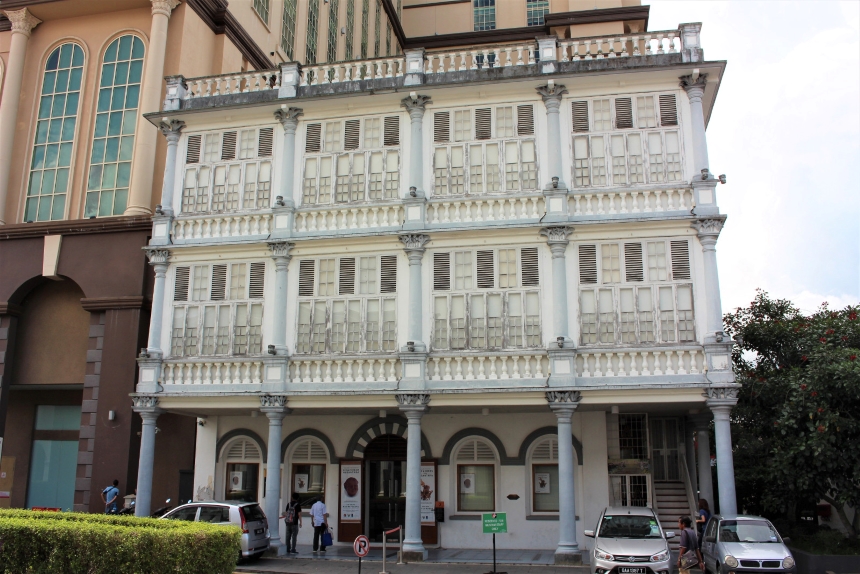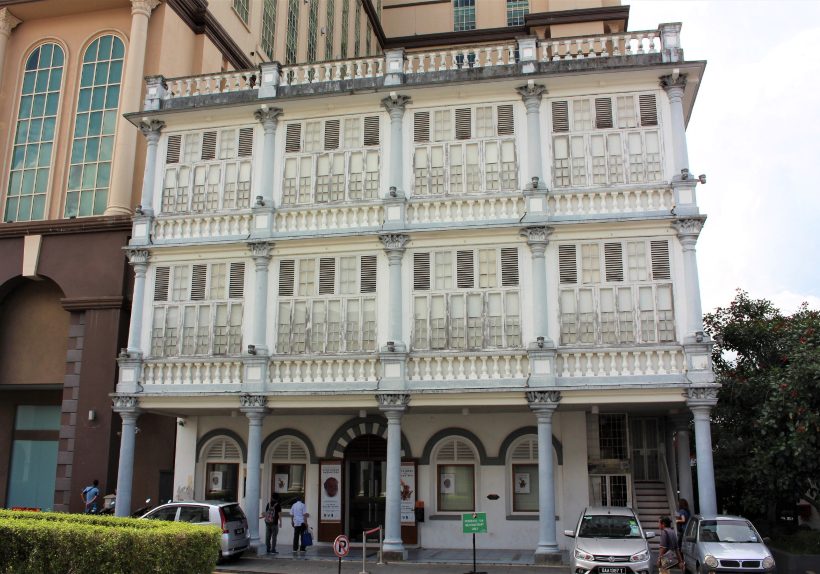(Above) The Pavilion Building in Kuching, which houses the Sarawak Textile Museum. Photo from Aroma Asian.
Last Wednesday (10 February 2021) saw the launch of Sarawak Museums mobile application by Sarawak Museum Department.
Though essentially a digital promotional tool by the Sarawak Government to highlight Sarawak as a top tourist destination, the app can also be used by local and international researchers and academics to explore the State’s various artifacts and history.
For those of you who want to learn more about Sarawak through its past at your fingertips, the app allows you to do just that (you can find it on Google Play and Apple App Store), making it a great avenue to learn and appreciate the journey the State has gone through to become what it is today.
In fact, history in general is a multifaceted field of study that enables you to improve your awareness of various cultures and gain greater moral understanding of our world.
Learning it can be a challenge, but when you go beyond remembering information like names of people and places or key events and dates, and make it a point to discover elements behind the past, history can actually help develop your transferable skills.
Mastering these skills through this supposedly ‘boring’ subject – such as critical thinking, research and analytical skills, communication, general awareness, etc. – can then provide you the flexibility to be proficient in a wide range of fields, which leads to diverse job opportunities in the future.
There are many other reasons why you should learn history; here are a few of them as noted by American history book publisher Arcadia Publishing. You can read more about it here:
To develop better understanding of the world
“You can’t build a framework on which to base your life without understanding how things work in the world. History paints us a detailed picture of how society, technology, and government worked way back when so that we can better understand how it works now.
“It also helps us determine how to approach the future, as it allows us to learn from our past mistakes (and triumphs) as a society.”
To have a working understanding of change
“It goes without saying that change can be a difficult concept to understand. Each of us has a different experience with the rest of the world – an experience shaped by societal norms, cultural differences, personal experiences, and more.
“We know when we as individuals crave change and why. History helps us better understand how, when, and why change occurs (or should be sought) on a larger scale.”
To be decent citizens
“Good citizens are always informed citizens, and no one can consider himself to be an informed citizen without a working knowledge of history.
“This is the case whether we’re talking about our role in our community or in regards to our nation on the whole. History helps us become better voters and more effective members of any type of society. It helps put us in a position to better inform others as well.”
To make better decisions
“‘Those that do not learn history are doomed to repeat it.’ Those words were first spoken by George Santayana, and they are still very relevant today because of how true they are.
“History gives us the opportunity to learn from past mistakes. It helps us understand the many reasons why people may behave the way they do. As a result, it helps us become more compassionate as people and more impartial as decision makers.”




